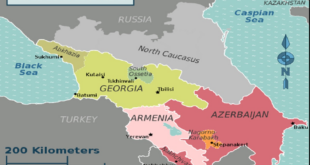The Joe Biden administration has chosen to revive the peace process in Afghanistan. However, this involves several political risks and spoilers as there are many elements in the package that are unacceptable to either Kabul or the Taliban, or both. Any change in the political structure of Kabul will have significant repercussions for all its neighbours, including Pakistan and India.
In a high-risk political gamble, the United States’ (US) President, Joe Biden, has chosen to revive the stalled peace process in Afghanistan. Ambassador Zalmay Khalilzad, who has been retained by the Biden administration to recast the peace process he had designed as the special envoy of President Donald Trump, has renewed his shuttle diplomacy in the region. The new proposals were presented by Ambassador Khalilzad in February 2021.
Two leaked documents — a letter from the US Secretary of State Antony Blinken to Afghan leaders and a draft framework for the transition to a new order in Kabul — set out Washington’s new approach to ending the prolonged conflict in Afghanistan. The initial responses to the peace idea have not been encouraging, but it remains to be seen how much of political capital will Washington bring to bear upon the parties to resolve the conflict in Afghanistan.
The call for power-sharing between the current government in Kabul and the Taliban has perhaps been the most controversial element of the peace proposal as it finds much resistance from both parties. At once central and difficult to achieve, reconciliation holds the key to ending the prolonged and brutal civil war in Afghanistan.
Five important elements stand out from the peace process.
The first is about the domestic context in the US. Biden’s peace plan has kept open the possibility that the 2,500-odd American troops, currently deployed in Afghanistan, could stay longer than planned. Under the agreement with the Taliban, the US had promised to withdraw all its troops in Afghanistan by 1 May 2021. The war in Afghanistan has been hugely unpopular in the US, and the Biden team has no desire to pursue “endless wars” in the Greater Middle East. However, there is a strong sentiment in the new administration that the withdrawal must be conducted responsibly.
Many in Washington believe the Trump administration had ceded its leverage by proclaiming a definitive date for withdrawal. In generating ambiguity about its withdrawal, the Biden government hopes to get some leverage with the Taliban, which has refused to abide by its commitment to reduce the levels of violence. The US is also turning up the heat on Afghan President Ashraf Ghani, who is increasingly been seen in Washington as part of the problem rather than the solution.
Second, Washington is pressing the Taliban to accept an immediate agreement to reduce violence for 90 days that will provide the space for the peace initiative.
The third is about the framework for peaceful transition. Ambassador Khalilzad has handed over a set of written proposals to both Kabul and the Taliban which will serve as the basis for fresh negotiations between the warring parties. In a separate letter to Ghani, Blinken said that the US was not “dictating terms” to the Afghan parties, but facilitating the movement towards an inclusive interim government, an agreement on the “foundational principles” for a new political order and a “permanent and comprehensive ceasefire”.
Fourth, the US is asking Turkey to convene a meeting of the government in Kabul and the Taliban to finalise a peace settlement. This new role for Turkey in the Afghan peace process comes as a surprise to many, but Pakistan might welcome it, given the current close ties between Islamabad and Ankara.
Fifth, the Biden administration is asking the United Nations to convene a meeting of the foreign ministers from China, Russia, Pakistan, Iran, India and the US to develop a “unified approach” to peace in Afghanistan.
Few would want to bet on the success of this strategy, which involves many political risks and any number of spoilers. Ending civil wars is never easy, and certainly not this one, which has seen massive interventions by outside powers. There are elements in the Biden package that are unacceptable to either Kabul or the Taliban, or both.
Kabul, which spent so much time and energy persuading the Taliban to accept peace during the last few years, is now convinced that it is a waste of time engaging with it. The Taliban is not willing to give up its sanctuaries in Pakistan and will not accept any dilution of the strict Islamic system that it would like to enforce in Afghanistan. Both seem opposed to power sharing as an interim arrangement that will precede the drafting of a new constitution and holding elections to constitute a government that is acceptable to all.
Agreeing on interim and future arrangements and abiding by them are always hard for warring parties in any peace process. Given the scale of the current divergence between Kabul and the Taliban, the conflicting interests of the regional powers, the declining domestic support in the US for further military involvement in Afghanistan, the Biden Administration has a brief window to force the pace of peace process. However, President Biden is taking his chances.
It may not end either the 42-year-old war in Afghanistan or the two-decade-old US military intervention in Afghanistan, but the Biden administration’s new peace initiative could mark the beginning of a new chapter in the tragic contemporary history of Afghanistan. While the prospects for an agreement between Kabul and the Taliban look doubtful, there is no question at all that the current structures in Kabul set up after the ouster of the Taliban at the end of 2001 look unsustainable.
It is difficult to avoid the conclusion that the tragedy in Afghanistan might well continue. No other set of developments has had more impact on the South Asia in the last four decades than the unending turbulence in Afghanistan. It has inevitably enveloped much of the subcontinent and shaped the evolution of its internal politics and international relations over the last four decades. A change in the political structure of Kabul, it will be right to expect, will have inevitable and significant repercussions for all its neighbours, including Pakistan and India.
 Eurasia Press & News
Eurasia Press & News



